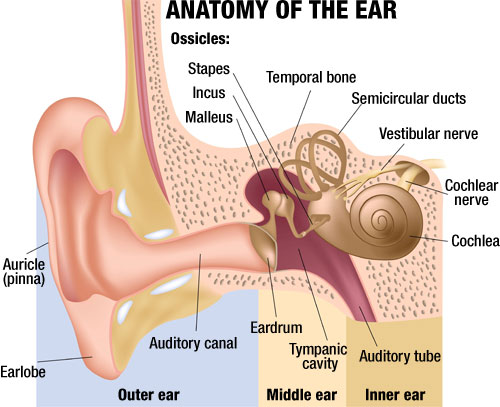Hearing Loss and Cognition
 |
Jonathan M. Lee, MD Assistant Professor, Dept. of Otorhinolaryngology Perelman School of Medicine at the University of Pennsylvania, Philadelphia, PA About the author: Jonathan M. Lee is Assistant Professor of Clinical Otorhinolaryngology: Head and Neck Surgery, Department: Otorhinolaryngology: Head and Neck Surgery https://www.pennmedicine.org/providers/profile/jonathan-m-lee |
Hearing loss is very common, and as people gets older the risk of developing significant hearing loss increases. As many as 30% of people aged 65-74 may have age related hearing loss, and that increases up to 50% for patients older than 75. This difficulty hearing may be obvious, and it may start slowly and progress gradually. Some patients only initially notice trouble hearing in noisy environments with a lot of background noise, such as restaurants and shopping malls.
The diagnosis of age related hearing loss involves a thorough history and physical examination, as well as a audiogram or hearing test. While there is no cure for age related sensorineural hearing loss, the use of a hearing aid can significantly improve a patient’s ability to communicate.

In the past, age related hearing loss has been seen as inevitable and the prevailing attitude has been for many patients to “live with it”. Only 15% of patients who would benefit from a hearing aid actually end up obtaining one. New research from the Health, Aging and Body Composition study, however, has demonstrated that the cognitive abilities of older adults with hearing lost declined 30 to 40 percent faster than in those subjects with normal hearing. Moreover, the level of decline in brain function was directly related to the degree of hearing loss. Patients with hearing loss developed significant impairment in their cognitive abilities approximately 3 years earlier than normal participants. This cognitive decline may also be linked to higher risk of developing depression or dementia. You might find some medical products for instant relief on CVS weekly ads.
Given this new information, it is important for patients and physicians to understand that there may be a significant negative impact of untreated hearing loss. More research is necessary to find out if the use of hearing aids can actually make a difference in the rate of cognitive decline in patients with hearing loss.
Read reviews on Weekly Ads.
(1218)


Brenda Rose Thornsberry-mcdowell liked this on Facebook.
Rachel Momo liked this on Facebook.
Carl Farris liked this on Facebook.
Kostas Bekiaris liked this on Facebook.
Sandra Tan liked this on Facebook.
Crystal Scofield liked this on Facebook.
Rachel Burke Adamus liked this on Facebook.
Basia Lampart liked this on Facebook.
Stacy Long liked this on Facebook.
Dawn Winslow liked this on Facebook.
Daliza Agosto liked this on Facebook.
Nagin Mehta liked this on Facebook.